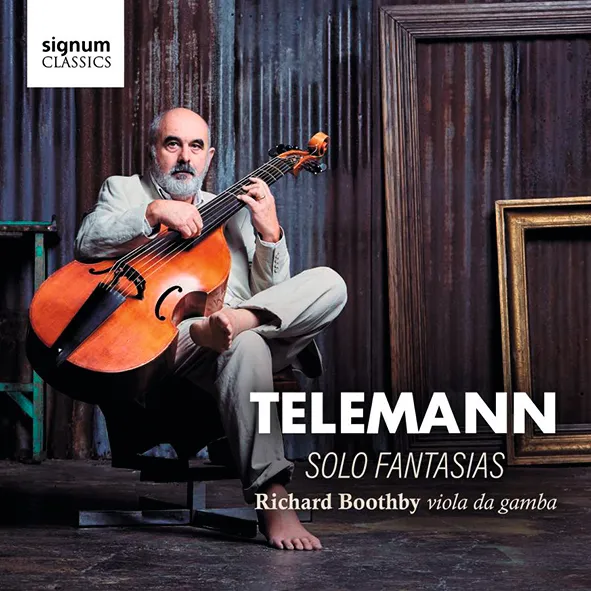
Telemann Fantasias for Viola da Gamba Richard Boothby (viola da gamba) Signum Classics SIGCD544 79:09 mins
Almost exactly 200 years after the first solo gamba music was published in Venice, Telemann brought out a set of 12 Fantasias for the instrument, companion pieces to previous collections for flute, then violin. And while the latter have delighted flautists and violinists down the centuries, their sibling was lost, only to resurface as recently as 2015 in a stash of manuscripts originally forming part of a castle library near Osnabrück. As you’d expect, the music is pre-eminently personable, eclectic, adroitly crafted, and gambists have rallied to the cause – ‘premiered’ in 2016, there have already been three complete recordings to which Richard Boothby now adds a supremely eloquent fourth.
Telemann’s Fantasias – a few fleeting gestures aside – are worlds away from the elaborate phantasticus imaginings of his friend JS Bach. Not for him the complexities of the Chromatic Fantasia for harpsichord or the monumental G minor BWV 542 for organ. Rather, most inhabit three short movements, few weighing in at more than a couple of minutes, and on Boothby’s watch the F major’s Grave clocks up a mere 34 seconds. But they’re not as slight as might be imagined, and Boothby is alive to their confiding intimacy and made- in-the-moment fluidity. He imbues the C major’s bold stab at fugato with an effortlessly breezy joie de vivre, nails the E flat Andante’s affable charm, and conjures a resonant earthiness for the D minor’s opening Allegro. Just occasionally a pinched note jars, and it’s easy to be wrong-footed by the phrasing at the start of the D major, but they’re small quibbles in a disc instinct with affectionate insights.
Paul Riley


